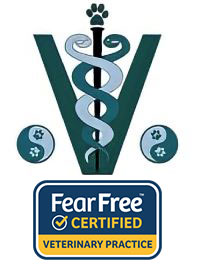Library
-
Leishmaniasis is a disease caused by a protozoan parasite transmitted by sandflies and is most commonly seen in the Mediterranean, Middle East, and South and Central America. It has been reported in some parts of the United States. Clinical signs include hard skin nodules, weakness, decreased appetite, vomiting, diarrhea, and more. Diagnosis is based on travel history, clinical signs, and diagnostic testing. The goal of treatment is to resolve clinical signs. Prognosis is guarded to grave depending on the severity of the disease.
-
Leishmaniasis in Dogs
Es una enfermedad causada por un parásito unicelular que afecta a los mamíferos en muchas partes del mundo y que está extendida por todos los países de la cuenca del Mediterráneo. Hay que tener en cuenta que la enfermedad también puede afectar a las personas, pero no existe una transmisión directa del perro al hombre o viceversa. Se transmite por la picadura de un pequeño mosquito (Phlebotomus spp).
-
This handout discusses lens luxation in dogs. The lens is the transparent structure within the eye that focuses light on the retina. Lens luxation is when the support ligaments of the lens weaken or break, causing the lens to dislocate from its normal position. The various types, clinical signs, heredity of the condition, diagnosis, treatment, and prognosis are outlined.
-
Lenticular sclerosis is the term for a bluish, transparent haze that develops in the lens of the eye in middle-aged to senior cats. Vision does not appear to be significantly affected. While the exact mechanism is poorly understood, it appears that the lens gradually becomes denser or harder with age. There is no specific treatment for lenticular sclerosis, nor is treatment necessary.
-
Lenticular sclerosis is the term for a bluish, transparent haze that develops in the lens of the eye in middle-aged to senior dogs. Vision does not appear to be significantly affected. While the exact mechanism is poorly understood, it appears that the lens gradually becomes denser or harder with age. There is no specific treatment for lenticular sclerosis, nor is treatment necessary.
-
Gentle, calm and friendly, these good-natured watchers make excellent family dogs. They are affectionate and incredibly patient with children, love to be included in family activities, and will wait patiently if you stop to talk on an outing. They are calm indoors and their affectionate personality makes them excellent therapy dogs.
-
Leopard geckos make great pets for children and adults. They do not require elaborate habitats and they have a 10–15-year lifespan with good health care, a clean environment, and proper feeding.
-
Leptospirosis is a bacterial disease of dogs and other mammals that primarily affects the liver or kidneys. The bacteria (Leptospira) that cause leptospirosis thrive in water. Infected or recovered carrier dogs may act as a source of the infection. Antibiotics such as penicillin, ampicillin, and amoxicillin, are reasonably effective against the acute stages of leptospirosis if started early, although most affected dogs require intensive care in the veterinary hospital. This disease can be transmitted to humans.
-
Tooth Resorption in Cats
Una de las enfermedades más frecuentes en la práctica veterinaria en gatos son las lesiones de resorción oral felinas (LROF). Estas lesiones también se llaman cavidades, caries, lesiones del cuello cervical, resorciones de la raiz internas o externas, o erosiones de la línea cervical. Las LROF normalmente se encuentran en la parte exterior del diente, en el área donde el diente se une con la encía.
-
Leuprolide is given by injection and is used off label in ferrets and birds to treat reproductive and adrenal problems. Give as directed. Side effects in ferrets may include pain at the injection site, breathing difficulties, and sleepiness. Do not use in pets that are allergic to it or other gonadotropin-releasing hormones, and do not use in pregnant or nursing pets. If a negative reaction occurs, please call the veterinary office.


